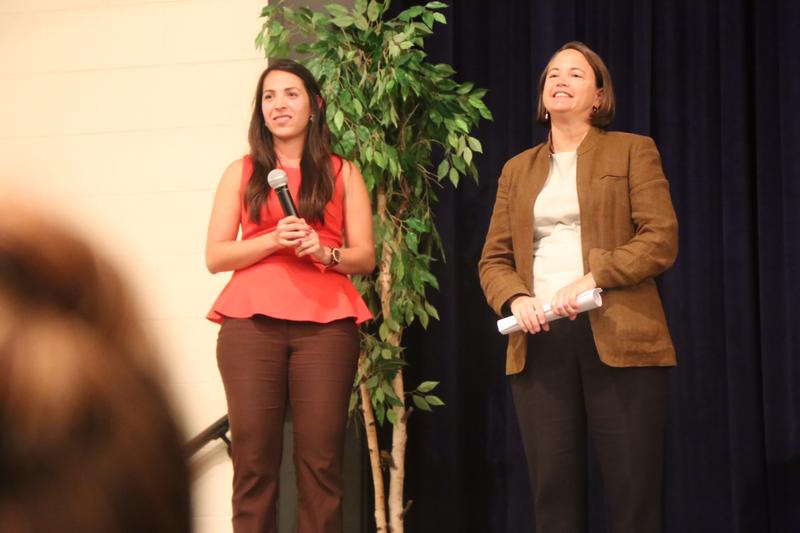
Glencliff is one of the most diverse high schools in the state. Almost half of the student population is Hispanic or Latino. And many of them have protection under the DACA program. So that’s where the Tennessee Immigrant and Refugee Rights Coalition held a workshop Thursday night for students and their families to try to answer “what’s next?” after this week’s announcement that the protection could end.
It wasn’t just Metro Schools that helped publicize this meeting. School districts around the region sent out robo-calls. One reached Carmen Labrada and Francisco Perez, who drove from Lebanon. They have two children with DACA. The youngest is a senior and eager to go to college.
“Without documentation, it’s not easy to find a good job and we don’t want that for our kids,” Labrada said in Spanish. “We want them to go to school and to have a better future.”
They say they’ve had a hard time getting concrete answers but feel better after hearing from a lawyer.
An immigration attorney with Justice for Our Neighbors took questions from the audience.
Organizers want to make sure that DACA recipients understand that they’re still protected until their permits expire and that those whose documents are set to lapse before March 5th have less than a month to apply for renewal.
But there are still lots of other questions.
Does one have to notify their employer when their permit expires? The answer is no. What about those with pending DACA applications? They’ll still be processed. Will they continue to be able to go to school? Yes. Could they lose their scholarships? Maybe.
The workshop concluded with immigrant advocate Camila Fyler calling for young people to take care of themselves.
“We are setting up healing spaces for DACA recipients on how to share with other recipients affected on how this is impacting their lives,” Fyler said. “We are going to connect them with mental health resources because this is a very devastating time for them and their families.”
The Tennessee Immigrant and Refugee Rights Coalition is also asking students to reach out to their state representative to share their story.

